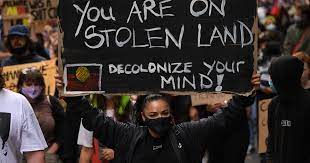BRAZIL AND THE MILITARIZATION OF EDUCATION - IGOR BARRETO DE SOUZA - BRAZIL
- makfor9
- 21 nov 2021
- Tempo di lettura: 3 min
It is 7:30 a.m. on a Monday morning, and a new week has just begun. The teacher enters the class to begin his lesson and is saluted by his students, all standing up. This is not just any school, it is a military school, which have gained a lot of popularity in recent years, especially after the election of Jair Bolsonaro as President. In these schools, students are taught, from the very first days of school, the (civic-)military values of respect for hierarchy, as well as answers to bugle calls, order and marching.
In Brazil, the tradition of military schools is quite old and widespread among society. It crosses generations and it is not hard to find someone who has studied, or who knows someone who has been to one of these schools. Not surprisingly, the first of these schools, the Military School of Rio de Janeiro, was created in 1889, and is still known for its teaching quality and tradition.
In fact, they are reference establishments in basic education in Brazil, which leads thousands of parents to register their children to compete for one of the few vacancies available to the public. The excellence of teaching in these institutions is proven not only by tradition, but also by the results obtained from a quality teaching staff, and the excellent infrastructure that these schools have in comparison with the rest of Brazilian public education.
And, exactly at this point lies a very delicate issue in this relationship: the prioritization of military education. In recent years, Brazil and the world have witnessed a growth of nationalist and conservative movements. In the Brazilian case, the most characteristic figure has been the current president, Jair Bolsonaro. The latter, an ex-Army Captain, has always been an advocate for military education as a solution to the problems experienced in national public education. Currently, the Brazilian educational situation is not at all positive, with a scenario in which those who can afford it can pay for quality private schools, while less privileged classes must rely on public education, which is considerably underfunded and generally with a terrible infrastructure.
Not only that, given the catastrophic scenario in many schools around the country, reports and videos are relatively "common" of students threatening, disrespecting, and even attacking teachers inside classrooms. Certainly, the pedagogical issues that involve the loss of respect inside the classroom are diverse: lack of incentive to education, underpaid professionals, extremely precarious infrastructures, lack of social assistance to low-income youth with special needs, etc. But, according to the current President and his followers, there is only one answer: militarization. This would be responsible for educating these young people "by force", bringing back the much-needed respect between teacher and student that is absent most of the time.
However, some reservations must be made since most of the time this type of education is destined to the less favored strata of society, since young people with high incomes can pay for a more humanized education that uses current pedagogical mechanisms in the learning process. Furthermore, it is noteworthy that public policies aimed at revitalizing public education are not discussed, but rather its abandonment in favor of a militarized education.
Schools are more than just places for traditional teaching; they are responsible for forging citizens. Which in turn must keep in mind their roles as agents in the local, national, and global social contexts, understanding their role as actors of change; and must not be merely followers of orders with no critical thinking.
Therefore, let the pens be prioritized again, not the camouflage!




Commenti